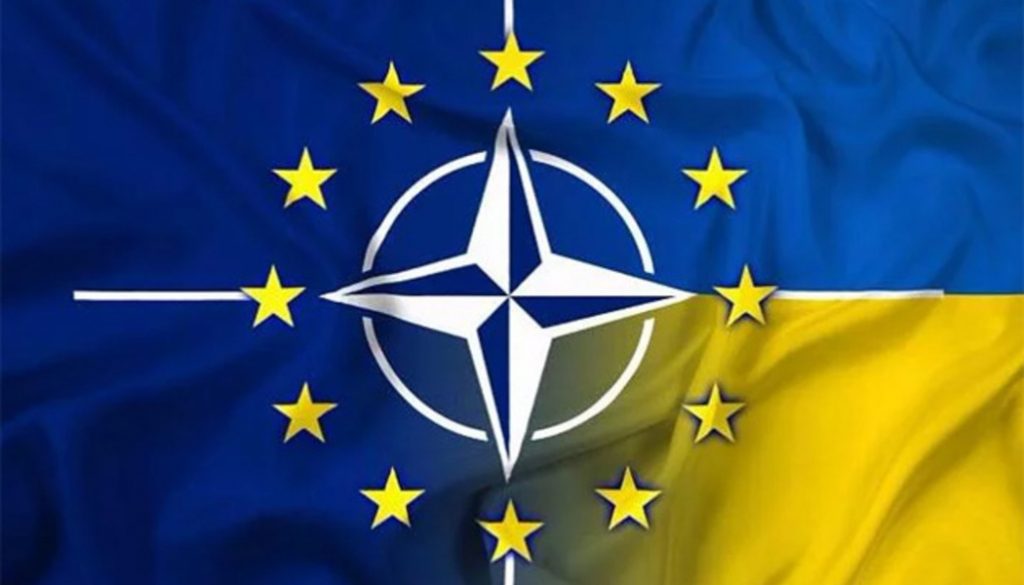As the NATO summit approaches, the Russian Federation has intensified its disinformation campaigns aimed at discrediting the West, particularly focusing on undermining support for Ukraine. This strategy includes reviving the narrative around the sabotage of the Nord Stream pipeline, a topic that has resurfaced in the media at a convenient time. The goal is clear: undermine Ukraine’s reputation, weaken Western solidarity, and divert attention from Russia’s aggressive actions.
Russian Disinformation Strategy
Ahead of major international meetings, such as the NATO summit scheduled for July 9-11, Russia often intensifies efforts to sow discord among Western allies. This tactic involves attempts to portray Western leaders, especially U.S. President Joe Biden, as incompetent and incapable of leadership. By undermining trust in Western leadership, Russia hopes to weaken NATO countries’ resolve to support Ukraine.
The narrative around the sabotage of Nord Stream is a key element of this strategy. This topic, which first appeared in the media in the early stages of Russia’s war against Ukraine, is now being revived to question Ukraine’s integrity and portray it as an aggressive, unreliable state. This narrative serves a dual purpose: to deter Western countries from supporting Ukraine and to divert blame for infrastructure sabotage away from Russia.
Timing of the Nord Stream Narrative
The recent revival of the Nord Stream narrative is no coincidence. As Western leaders prepare to discuss further aid to Ukraine at the NATO summit, Russian propaganda seeks to undermine these efforts in advance. By suggesting that Ukraine had long-term plans to sabotage the Nord Stream pipeline, Russia aims to portray Ukraine as an «experienced terrorist state» capable of directly harming Western interests. This image is intended to evoke fear and suspicion among Western countries, particularly Germany, which heavily depends on energy imports.
An article published by Welt am Sonntag on July 6, citing German and international investigations, claimed that plans to destroy the Nord Stream pipeline could have been developed by a Ukrainian group as early as 2014. This assertion aims to sway German public opinion away from supporting Ukraine, especially with the approach of winter, when energy security becomes an increasingly pressing issue.
Undermining Ukraine’s Reputation
By portraying Ukraine as a terrorist state unwilling to engage in peaceful negotiations, Russia aims to neutralize the positive effects of international support for Ukraine, such as those seen at the recent summit in Switzerland. This narrative shift seeks to present Ukraine not only as a victim of aggression but also as an instigator of violence and chaos, thereby justifying Russia’s ongoing military actions and diminishing sympathy for Ukraine’s plight.
Promoting the narrative of Ukraine as a saboteur conveniently overlooks Russia’s systematic destruction of Ukraine’s critical infrastructure. Systematic attacks by the Russian army on civilian infrastructure are a strategy aimed at displacing the Ukrainian population and undermining the country’s resilience. This context is crucial for understanding the broader implications of the Nord Stream narrative and the selective memory employed by Russian propaganda.
Stoking Fear and False Flag Operations
Emphasis on the vulnerability of Western critical infrastructure is a tactic aimed at stoking fear in European societies. In the context of recent political upheavals in Europe, including far-right electoral victories and the heightened threat of terrorism, the notion of infrastructure sabotage resonates deeply. The Nord Stream narrative functions as a classic false flag operation—an attempt to blame Ukraine for actions that serve Russian interests by destabilizing Western unity.
The publication of a compromising article in a German outlet underscores the extent of Russian disinformation’s penetration into the West. It highlights the ongoing challenge of combating false narratives and protecting the integrity of information in democratic societies. Analysts note that Russia’s priority increasingly shifts towards damaging and intimidating Kyiv’s supporters in the West, with this strategy involving the use of media to spread its narratives.
As the NATO summit approaches, it is crucial for Western leaders and societies to remain vigilant against disinformation campaigns aimed at undermining support for Ukraine. The revival of the Nord Stream sabotage narrative is a deliberate effort by Russia to drive a wedge between Western allies and weaken their collective resolve. By recognizing and countering this tactic, the West can continue to support Ukraine’s struggle for sovereignty and resist attempts to undermine international solidarity.

